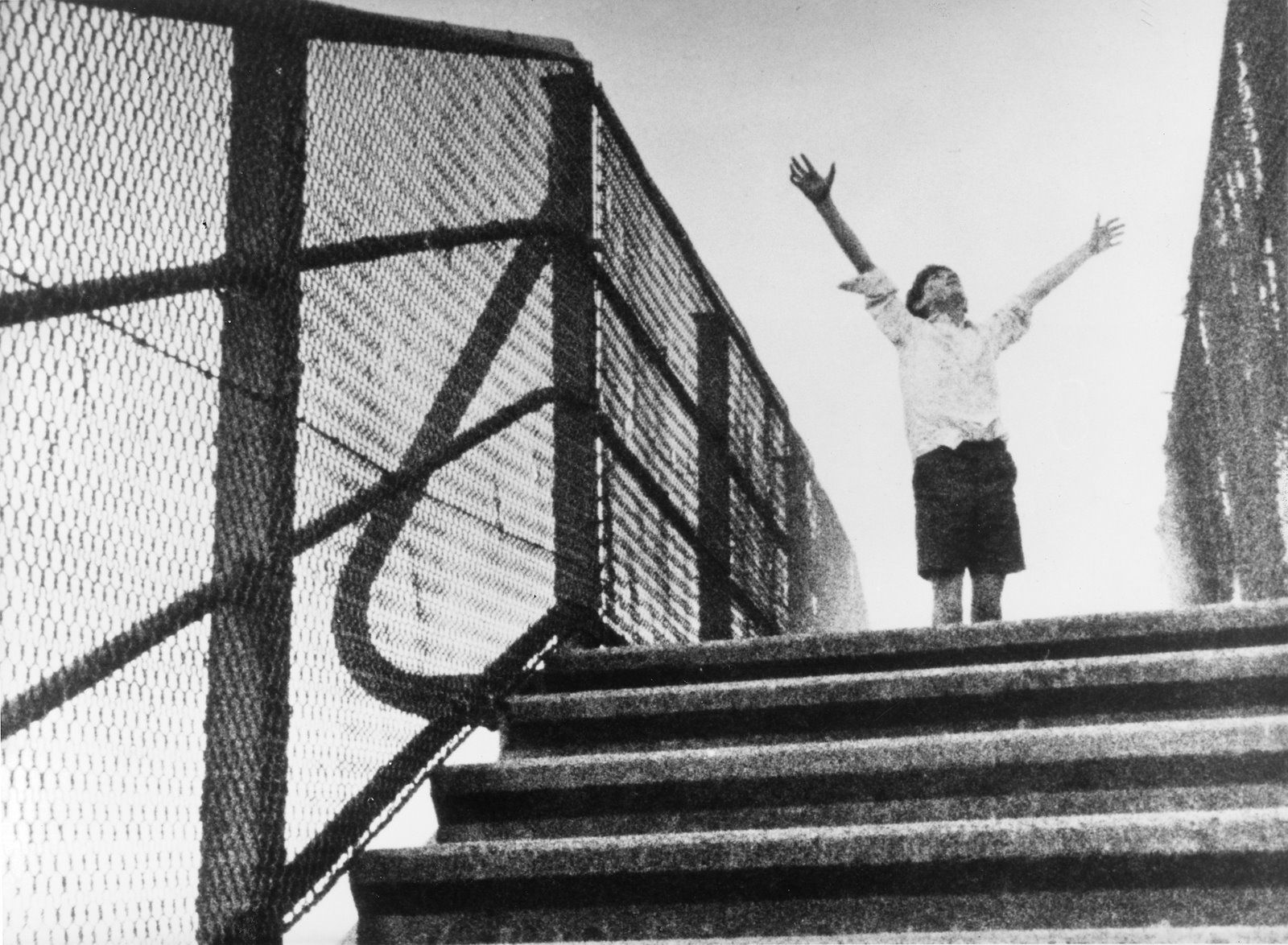
6 February 2014 20:30, KASKcinema, Gent. In collaboration with Courtisane.
My Childhood (1972, b&w, English spoken, 46’)
My Ain Folk (1973, b&w, English spoken, 55’)
My Way Home (1978, b&w, English spoken, 71’)
“Strangely enough, my trilogy is not about a dream world, but about the real landscape I had wanted so badly to escape from. But the making of these films could not be a cathartic exercise. There had to be a distance. I had to be objective so that the characters could come to life, so that the work could have shape.”
– Bill Douglas
He wouldn’t have liked his work being associated with the notion of the political. Certainly, although this trilogy portrays the life of a boy growing up in a poverty-stricken mining village in post-war Scotland, it does not shed any light on the circumstances of the economic and industrial devastation that would lead up to the widespread misery of the Thatcher years. And although the largely autobiographical films are clearly rooted in a deepfelt empathy for the hardship and loss endured by many, cries of suffering and injustice remain shrouded in silence, while signs of struggle and revolt seem stifled in bleak monochrome shades. But perhaps this mutism is exactly what defines the poetics of Bill Douglas’ work, which is also a politics. In contrast to many works of militant fiction – including those categorised as “social realism” – his films do not consist of denouncing false promises and hidden agendas for the sake of constructing another future, one that is always already laid out. There is no predetermined scheme of cause and effect here, no fixed scenario that can show us a way out. There are only situations, composed of inter-weavings of glances and gestures, times and spaces. The “realism” Douglas was looking for means precisely this: to take distance from the narrative schemes that supposedly make up reality, and delve deep into the interior of the situations themselves, there where the events of the world become affects, enclosed in mute faces, mobilized in silent actions, finding expression in spare words. In this world of affects and intensities lingers the sense of another life and the dignity needed to pursue the dream of this other life, always unpredictable, far away from this “reality” where everyone, as the boy is told time and time again, is bound to a sole place and destiny.
In the context of the research project “Figures of Dissent (Cinema of Politics, Politics of Cinema)”
KASK / School of Arts